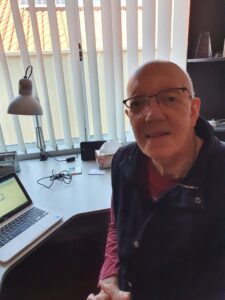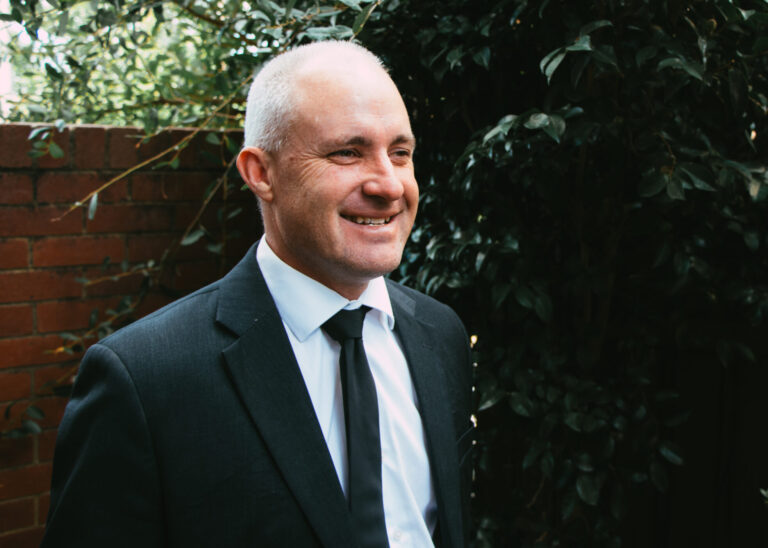Honestly, why would you do it? Why would you visit prisons regularly?
I’m Adrian, I’m 71 years old, and have been involved with Prison Fellowship for over 20 years. What draws me to volunteer in prisons is two-fold: I have a passion for serving minority groups, and I know that if Jesus walked on earth in 2021 he would have prison visits high up on His agenda. If it’s good enough for Him, it is good enough for me!
I have always been drawn to people in tough life situations and prison ministry is no different. Most people shy away from prisons and prisoners, afraid of what they might see and hear. But they don’t know the whole story. Sometimes I think if I had been in their shoes, I would have gone to prison as well. My own experience has taught me to see things differently, and to understand that from God’s perspective everyone is important. Every time I visit a prison I am amazed by the courtesy and respect shown to the volunteers by the inmates, and reminded again that we all share a common humanity.
My involvement in the Sycamore Tree Project dates back to 2012, when I accompanied other Prison Fellowship volunteers to a program in one of Perth’s high security prisons. I was amazed at the skill of the facilitator, who was able to bring together perpetrators and victims of crime in helpful, honest discussion.
I was also incredibly impressed by the courage of the victims of crime who shared their experiences of crime, and the surprising honesty and openness of the prisoners. I was hooked!
The Sycamore Tree Project provides us with the opportunity to collectively discuss issues that may otherwise never be explored. The project builds trust between prisoners and victims of crime, and fosters basic but fundamental conversation within the group. Inmates are given the opportunity to confront difficult questions such as, “How did your crime affect others?”, “Who are the victims of your offence?”, and “How can you act differently in future?”. For Harry* these questions hit home. He was in prison for a drug-related offence, when he learnt that his son had started taking drugs. Horrified to see how his behaviour had impacted his son, Harry had a new resolve to kick the habit and set a good example for his son.
Through the Sycamore Tree Project we all – victims, inmates, and facilitators – are given the chance to reflect on our backgrounds, our desires, and our hopes for the future. We are also able to discuss personal strategies with the inmates, and provide resources that might be helpful upon release.
I am drawn to uncomplicated, straightforward ideas, which is another reason I am passionate about the Sycamore Tree Project. In this program, there are no notes for the participants, there’s no homework, and there’s no testing at the end – it is such a positive, feet on the ground, practical program.
The final session is aptly named “the graduation”, and it is an opportunity for the participants to reflect on the program and share how the program has impacted them. The graduation is also open to family members, friends in prison, and the prison management team. In this way, the graduation is a dynamic advert for the usefulness and benefit of the program, and friends of the participants are often encouraged to enrol for a future program. Prison staff are always impressed and encouraged by the program, and victims of crime are reminded that their dreadful experience plays an important role in shaping prisoner rehabilitation.
Every time I leave prison, I feel I have gained much more than I have given. I am aware of the great privilege of being able to enter a prison and use such skills as I have, led by God, to positively influence the participants, many of whom come from severely disadvantaged backgrounds. I am thankful for God’s kindness in blessing this ministry, and I look forward to continuing to serve Prison Fellowship and God in the years to come.
Adrian Grant – Prison Fellowship Volunteer
*Name has been changed





